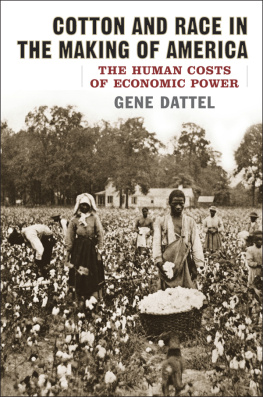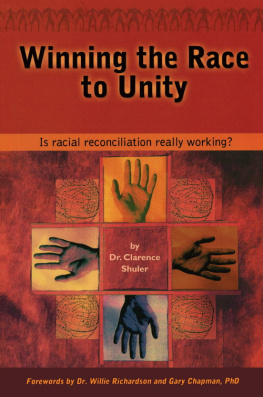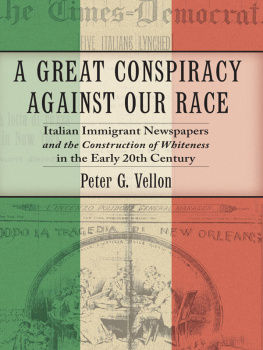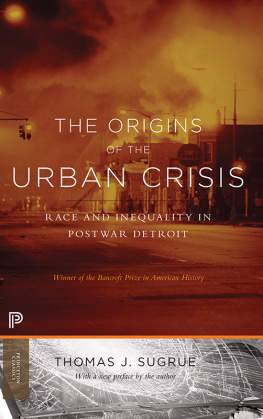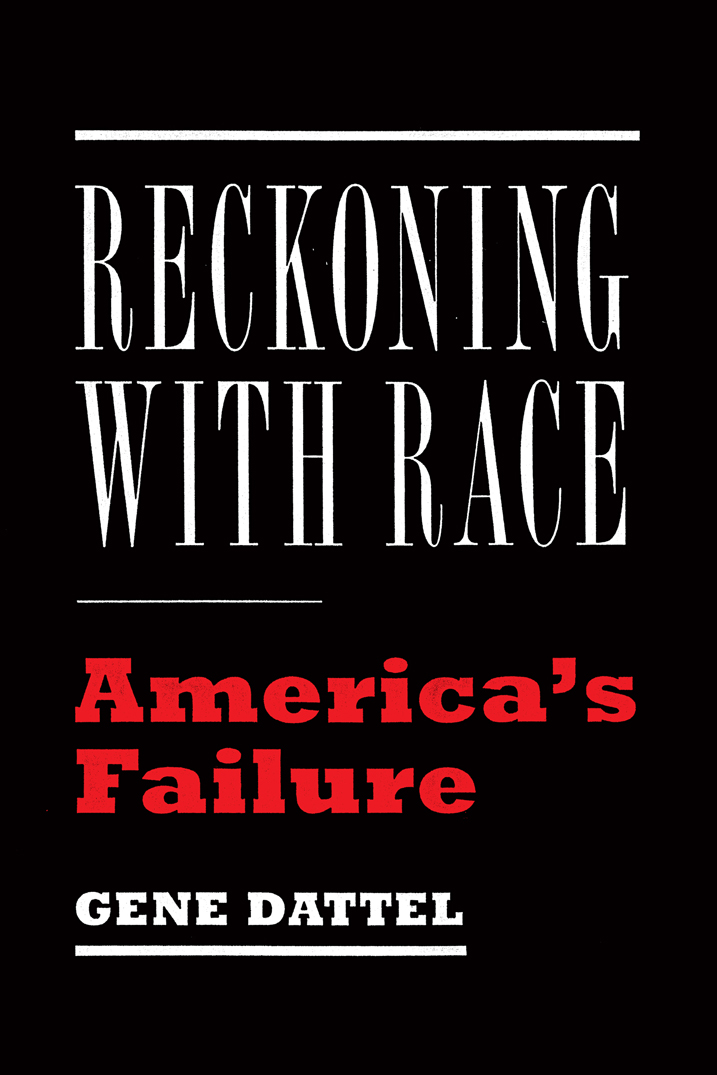

2017 by Gene Dattel
All rights reserved. No part of this publication may be reproduced, stored in a retrieval system, or transmitted, in any form or by any means, electronic, mechanical, photocopying, recording, or otherwise, without the prior written permission of Encounter Books, 900 Broadway, Suite 601, New York, New York, 10003.
First American edition published in 2017 by Encounter Books, an activity of Encounter for Culture and Education, Inc., a nonprofit, tax exempt corporation.
Encounter Books website address: www.encounterbooks.com
The paper used in this publication meets the minimum requirements of ANSI/NISO Z39.481992 (R 1997) (Permanence of Paper).
FIRST AMERICAN EDITION
LIBRARY OF CONGRESS CATALOGING-IN-PUBLICATION DATA
Names: Dattel, Eugene R., author.
Title: Reckoning with race: Americas failure / by Gene Dattel.
Description: New York: Encounter Books, 2018. | Includes bibliographical references and index.
Identifiers: LCCN 2017002302 (print) | LCCN 2017022547 (ebook) | ISBN 9781594039102 (ebook)
Subjects: LCSH: United StatesRace relationsHistory. | African AmericansHistory.
Classification: LCC E185.61 (ebook) | LCC E185.61 .D27 2018 (print) | DDC 305.800973dc23
LC record available at https://lccn.loc.gov/2017002302
Images sourced by Jill Kelly Fanucci/Griangraf Research
Interior page design and composition: BooksByBruce.com
Dedication
To the Future of America
In the end, to know the past is to know ourselvesnot entirely, not enough, but a little better. History can help us to achieve some grace and elegance of action, some cogency and completion of thought, some harmony and tolerance in human relationships. Most of all, history can give us a sense of excitement, a personal zest for watching and perhaps participating in the events around us that will, one day, be history too.
Robin W. Winks, The Value of History, in A History of Civilization: Prehistory to the Present (1995)
Contents
Table of Contents
Guide
We need a frank and honest discussion about race. Or as James Baldwin said in 1964 and as Martin Luther King Jr. put it in 1967, Tell it like it is. How many times have you heard or read this dictum about Americas most sensitive, tragic, and inflammable topic, race? Although the call persists, the conversation never occurs. Instead white Americans are surprised, in fact stunned, by the level of racial tension in America, especially when it turns violent. It fuels the fear of a large, permanent black underclass that will not go away. Fifty years after Baldwin and King, why is the racial divide still our defining social issue?
In the pages to follow I concentrate on what I see as the fulcrum of this issue: the entrance of most black Americans into the economic mainstream. Make no mistake: blacks see economics, exacerbated by past injustice and discrimination, expressed as income gap or poverty as the main cause of black frustration. Economicswhich means jobsis a critical part of the discussion within the black community. And the prerequisite for broad participation in economic advancement is assimilation, denied to blacks until the mid-twentieth century. Assimilation, sometimes considered pejorative, is falsely assumed to deny ones cultural differences. In the word game that has ensued, integration and acculturation are often preferred. Lets be clear: the proper use of assimilation allows for practical and efficient adjustment to common values while retaining different cultural heritages. Without appropriate assimilation, a harmful road to separatism follows.
To assimilate should be a greater priority for blacks than the overzealous pursuit of cultural acceptance. The eye on the prize should be focused on economic improvement, not perceived slights and a separate black society.
For the most part, blacks want more resources thrown at their problemsmore public and private funding. Concerned whites agree that money is needed to address issues of housing, education, crime, and single-parent families but want more accountability. Blacks also want more law enforcement against discrimination and more programs run by blacks. They dismiss troubling behavior in the black community, avoiding responsibility and blaming inadequate economic support.
From the birth of the nation, America has relied on assimilation to mold a cohesive society. Assimilation has meant the acceptance of common goals, common values, a common language, and a common legal system that leaves abundant room for cultural heritage. George Washington clearly outlined the countrys attitude toward immigrants and their heritage in his 1790 letter to the Jewish community of Newport, Rhode Island. He welcomed the Jews, promising tolerance, protection, and the good will of other Americans while reminding them of the obligations and responsibilities of good citizenship.
The Founding Fathers had witnessed the catastrophic results of European fragmentation by land, ethnicity, language, and culture. These were practical men. National unity was the only means of survival. They could also observe firsthand the inherent weakness and vulnerability of the Native American tribal organization, which led to internecine warfare among the tribes and various collaborations with European countries against each other in their battles.
Tribalism and provincialism had to give way to a national identity. As it happens, no other country has attracted so many immigrants from diverse backgrounds and absorbed them into a cohesive unit necessary for the survival of the whole. Immigrants by the millions still come to America for political, religious, and economic reasons but overwhelmingly for a better material life. A large part of their success has been due to Americas adaptable free enterprise system.
White immigrants left the old country and came voluntarily to America. African Americans, involuntary immigrants, arrived in slave ships, first in the seventeenth century, and have been struggling with their identitynational or separateever since.
The first Naturalization Act in 1790 specified that any white alien, being a free white person was eligible for citizenship. In an America with race-based slavery, where did a free black fit into the assimilation scheme? Although the Fourteenth Amendment in 1868 granted citizenship to blacks, social norms continued to exclude them from the process of assimilation.
Other newcomers to American shores were urged toward assimilation. In 1793 Washington welcomed German immigrants but cautioned them against retaining their language, habits and principles. Better that they intermixed, he wrote, with our people...assimilate to our customs, measures and laws: in a word, soon become one people.
We need to be reminded of the practicality of the Founding Fathers vision. Washington was a land surveyor and real estate investor before he was a general and a president. Thomas Jefferson mastered law, mathematics, horticulture, and architecture; he wanted a distribution of immigrants sparsely among the natives for quicker amalgamation. Benjamin Franklin was an inventor, discoverer of the electrical conductivity of lightning, printer, advocate of hard work and education, and a self-made man. He, too, advocated the distribution of immigrants among English speakers. The Germans begin of late, warned the sage Franklin, to make their Bonds and other legal Writings in their own Language, whichthough I think it ought not to beare allowed good in our Courts. The chaos and inefficiency of allowing multiple-language contracts was obvious then and remains so now.


